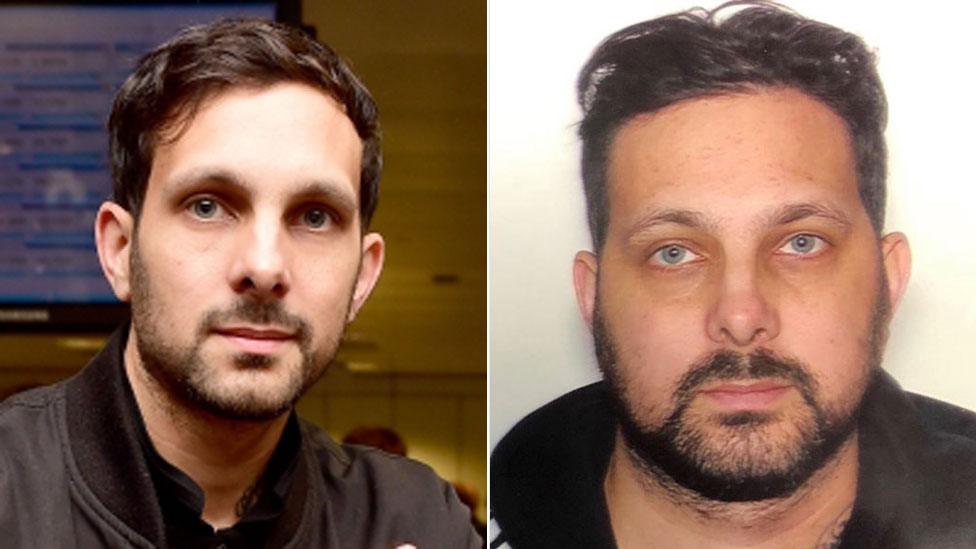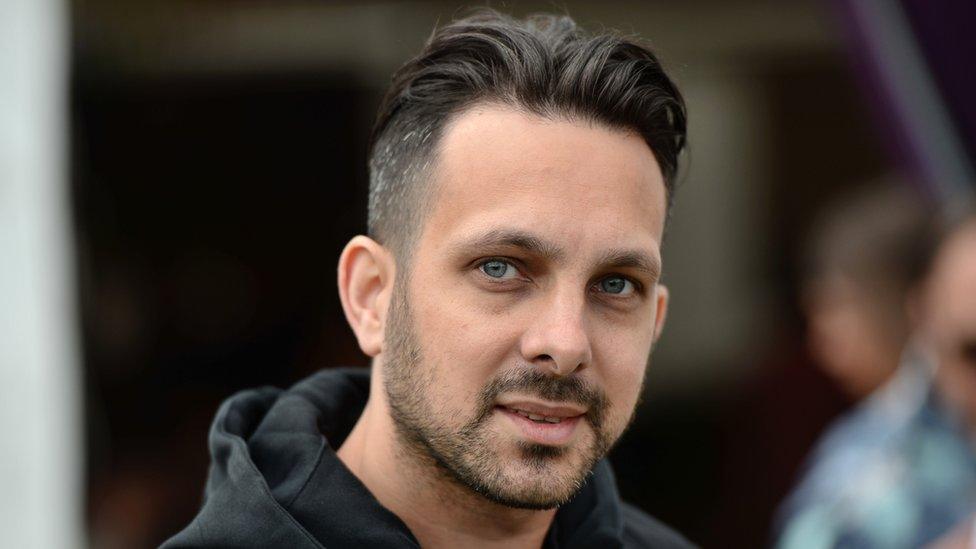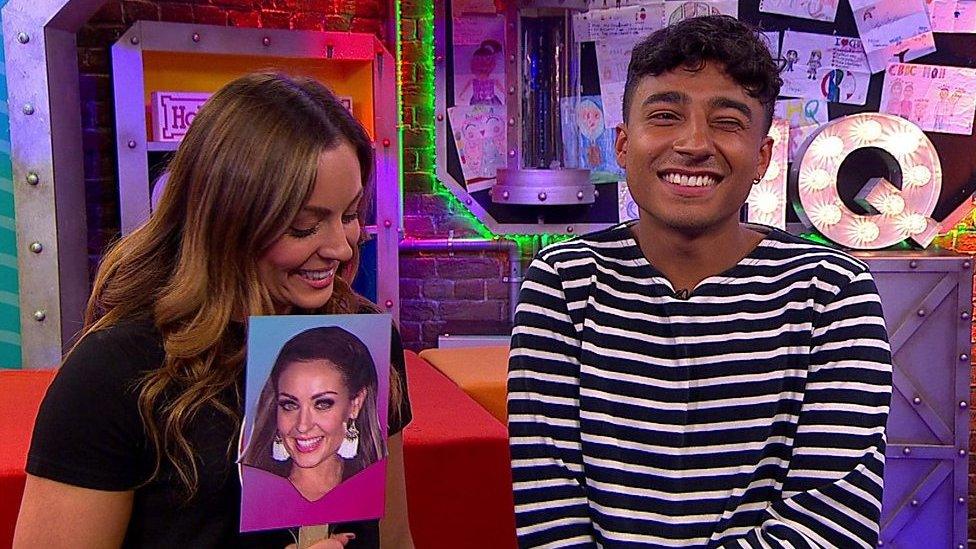Crohn's disease: Amy Dowden talks to a young fan about living with Crohn's
- Published
- comments
Amy from Strictly talks about Crohn's Disease with 14-year old Ellie
Amy Dowden, who is partnered with CBBC's Karim on Strictly Come Dancing, has been living with an invisible health condition for more than half her life.
The professional dancer first revealed that she had Crohn's disease in May this year, and recently went to meet another sufferer of the condition, 14-year-old Ellie.
Ellie, was diagnosed with severe Crohn's disease aged just seven and has spent months in hospital. She has spent long periods of her life having to be fed by a tube through her nose and after becoming unwell this year she had to have major surgery.
WATCH: What is an invisible condition?
Crohn's can make going to the toilet difficult and can cause really painful stomach aches.
Despite their illness, both Ellie and Amy are determined not to let Crohn's stop them from doing what they enjoy.
Ellie has raised over £8,000 for the Crohn's and Colitis Charity while Amy says: "I'm not Amy with Crohn's disease, it's part of me, it's made me stronger, but I'm Amy the dancer."
Speaking to Ellie, Amy said: "Yes we're going to have our dark down days, but we're going to have plenty of up days to go and achieve what we really want to achieve."
What Is Crohn's Disease?

Magician Dynamo spoke out about the way treatment for his Crohn's disease changed his appearance
The NHS describes Crohn's as a lifelong condition which affects parts of the digestive system, it causes the bowel to become sore and inflamed and it means going to the toilet can be hard and really painful.
The symptoms can be constant or may come and go every few weeks or months. But just because you have one or more of these symptoms it doesn't mean you definitely have Crohn's. If you're worried the best thing to do is to tell a parent or adult and visit the doctors.
The condition can affect people at any ages, and can cause these symptoms
•Diarrhoea
•Stomach ache
•Blood in your poo
•Mouth ulcers
•Tiredness
•Weight loss

Amy, who grew up in Caerphilly, Wales, says when she was little she used to hide her symptoms: "I'd be too scared to talk, where now, I'll talk to everyone".
She says that the important thing for anyone who is worried is: "Don't be scared to speak to family, friends, school teachers, it's not embarrassing."
Speaking from her own experiences Ellie says for those who need the help: "There's so much support."
- Published28 March 2018

- Published29 March 2018

- Published13 September 2019

